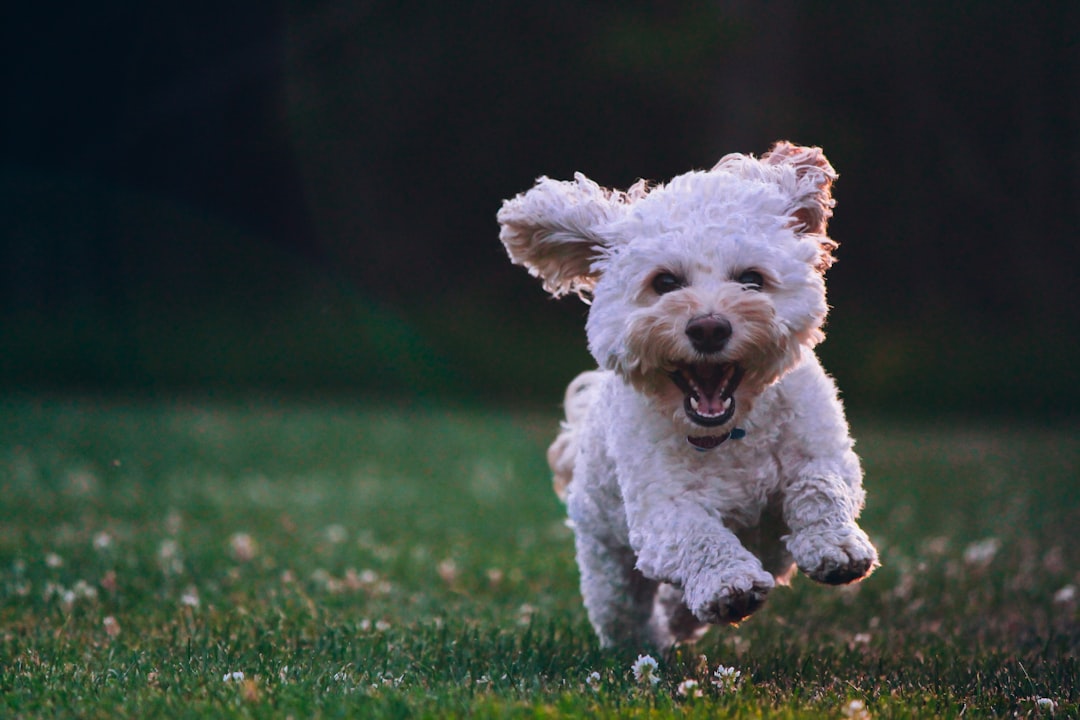Understanding the Temperament and Behavior of Poodles: Discover the origins, characteristics, and different sizes of poodles, as well as their intelligence, loyalty, and sensitivity. Learn about their exercise needs, socialization training, and suitability as family companions. Explore the importance of grooming and health considerations for these beloved pets.

Poodle Breed Origins and Characteristics
The fascinating history of poodles dates back to the 15th century in Germany, debunking the common misconception that they originated in France. This historical background adds depth to the breed’s lineage and showcases their enduring legacy. The poodle breed is also diverse, with three distinct sizes: standard, miniature, and toy, each exhibiting unique characteristics and temperaments. For example, standard poodles are known for their reserved yet energetic nature, while miniature poodles are more active and well-suited for families with small children. On the other hand, toy poodles, being the smallest of the three, excel as companions due to their affectionate and adaptable disposition.
The origins of poodles as hunting dogs and their subsequent role as companions to the aristocracy highlight their exceptional intelligence, elegance, and adaptability. This historical context provides valuable insights into the breed’s initial purpose and how their distinct traits have evolved over time. Understanding the historical origins and characteristics of poodles is essential for potential owners, as it sheds light on the breed’s enduring appeal and the unique qualities associated with each size variant.
Understanding Poodle Temperament
Poodles are renowned for their intelligence, loyalty, and sensitivity, making them highly trainable and people-oriented [2]. Their intelligence is often showcased in various dog competitions where they excel in agility, obedience, and tracking, demonstrating their quick learning abilities and desire to please their owners. Additionally, their loyalty and sensitivity make them incredibly responsive to the emotions and moods of their human family members, fostering a strong bond and understanding between the poodle and its owners.
When it comes to the different sizes of poodles, each size exhibits distinct temperamental traits. For example, standard poodles are known for being energetic and reserved, making them excellent companions for active families. On the other hand, miniature poodles are more active and tend to be better suited for households with small children due to their playful nature and sturdy build. Toy poodles, being the smallest of the three, make exceptional companions and are often well-suited for apartment living due to their compact size and affectionate demeanor. Understanding these differences is crucial for potential poodle owners to make an informed decision based on their lifestyle and family dynamics.
Moreover, the home environment and owner’s behavior play a significant role in shaping a poodle’s temperament and behavior. Positive reinforcement, early socialization, and consistent training are essential to bring out the best in a poodle, fostering well-mannered and confident behavior. Conversely, a lack of socialization and training can lead to behavioral issues such as shyness around strangers and excessive barking, underscoring the importance of a nurturing and structured environment for poodles to thrive.
 Poodle Behavior Patterns
Poodle Behavior Patterns
Poodles have a high energy level and intelligence, necessitating regular physical and mental stimulation to prevent boredom and destructive behaviors. For instance, without adequate exercise and mental engagement, poodles may resort to excessive barking, chewing, or other undesirable activities. This highlights the significance of providing them with activities such as interactive toys, puzzle games, and regular walks to keep them mentally and physically engaged.
Furthermore, poodles are highly sensitive and can be prone to separation anxiety if left alone for extended periods. This emphasizes the importance of companionship and attention in their lives. An example of this is when poodles are left alone for long durations without proper socialization and company, they might develop separation anxiety, leading to distress and behavioral issues such as incessant barking or destructive chewing. Therefore, it is crucial for poodle owners to ensure that their pets receive adequate companionship and attention to prevent such issues.
In addition, socialization training is pivotal for poodles to minimize shyness around strangers and to control excessive barking. This can be achieved through exposure to various environments, people, and other animals from an early age. For instance, taking a poodle to dog parks, obedience classes, and arranging playdates with other dogs can help them become more confident and less anxious around strangers, resulting in a well-rounded and socially adept pet.
Poodle as Companion Dogs
Poodles are renowned for their affectionate and family-oriented nature, making them excellent companions for families with children, given they are provided with proper training and socialization. Their eagerness to please and sociable disposition enable them to form strong bonds with their human family members, contributing to their suitability as family pets. For instance, standard poodles are known for their calm and reserved temperament, making them well-suited for households with children, while miniature poodles are more energetic and playful, making them ideal playmates for kids.
In addition to their need for training and socialization, poodles require a considerable amount of attention and companionship. They thrive in interactive and supportive environments and may experience separation anxiety if left alone for prolonged periods of time. For example, a poodle left alone for extended periods may exhibit signs of distress such as excessive barking, destructive behavior, or withdrawal. Therefore, potential owners should carefully consider their ability to provide the necessary time and attention to a poodle before bringing one into their home. It’s imperative to match the size and temperament of the poodle with the living environment, with toy poodles being suitable for apartment living due to their small size, while standard poodles may require more space and outdoor access to meet their energy needs.
Grooming and Health Considerations
In addition to regular grooming, poodles require specific attention to their coat as they are prone to matting. Without proper grooming, their curly, dense coat can become tangled and matted, leading to discomfort and potential skin issues. It’s important for poodle owners to understand the grooming needs of their specific poodle size and coat type to ensure the dog’s overall well-being and comfort. For example, standard poodles often have a thicker coat compared to miniature and toy poodles, which may require more frequent grooming to prevent matting and maintain a healthy coat.
Apart from grooming, it’s essential for poodle owners to be aware of the common health issues that poodles are prone to, such as sebaceous adenitis, hip dysplasia, and progressive retinal atrophy. Early detection and proper management of these health issues are crucial for ensuring the well-being and quality of life of poodles. For instance, regular veterinary check-ups, a balanced diet, and appropriate exercise can contribute to managing these health concerns effectively, allowing poodles to lead healthy and active lives. Potential poodle owners should consider these health factors when deciding to bring a poodle into their home, as it requires a commitment to providing the necessary care and attention to ensure the dog’s long-term health and happiness.
Consulting a veterinarian is not only important for managing the health of poodles but also for determining the most suitable type of poodle based on the owner’s lifestyle and the needs of the family members. For instance, a veterinarian can provide valuable guidance on choosing the right size of poodle based on the living space available, the activity level of the family, and any specific health considerations. This personalized approach to selecting a poodle can contribute to a harmonious and fulfilling relationship between the poodle and its human family members, ensuring that the dog’s needs are well-matched to the family’s lifestyle and capabilities.
Conclusion
In conclusion, poodle temperament and behavior are critical factors for potential owners to consider when welcoming these intelligent and sensitive dogs into their homes. By understanding the distinct characteristics and needs of standard, miniature, and toy poodles, owners can provide the most suitable environment and care for their pets. For example, standard poodles are known for their reserved yet energetic nature, making them excellent companions for families with children, while miniature poodles are more active and well-suited for smaller kids due to their higher energy levels.
Moreover, the significance of daily exercise and mental stimulation for poodles cannot be overstated. Without proper physical and mental activity, poodles may exhibit boredom-induced destructive behaviors, emphasizing the need for an active lifestyle and engaging activities. For instance, engaging in agility competitions or regular play sessions can help channel a poodle’s energy and prevent undesirable conduct. Therefore, potential poodle owners must be prepared to dedicate time and effort to ensure their pet’s well-being, happiness, and balanced behavior.
Furthermore, the grooming needs and health considerations specific to poodles, including the risk of health issues such as sebaceous adenitis, hip dysplasia, and progressive retinal atrophy, underscore the importance of regular veterinary check-ups and attentive care. By understanding the potential health challenges and grooming requirements, owners can proactively manage their poodle’s well-being and maintain their coat’s health and appearance. Therefore, thorough research and a comprehensive understanding of poodle temperament, behavior, and care are fundamental for prospective poodle owners to create a nurturing and fulfilling environment for these remarkable canine companions.
